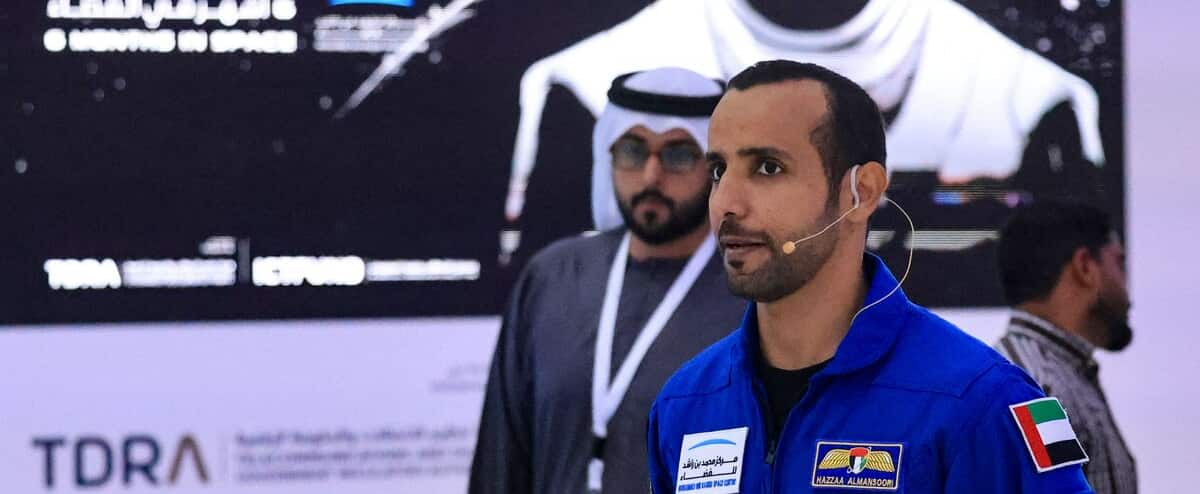An Emirati astronaut nicknamed the “Sultan of Space” said Thursday he was ready to spend the month of Ramadan inside the International Space Station (ISS), stressing the “challenge” of fasting under those conditions.
At 41, Sultan al-Neyadi will become the first astronaut from an Arab country to have spent six months in space when he flies to the ISS aboard a SpaceX spacecraft on February 26.
The United Arab Emirates, a wealthy Gulf state that participated in the space race a few years ago, sent another of its nationals, Hazzaa al-Mansoori, into space for an eight-day mission in 2019.
Sultan al-Neyadi’s March coincides with the holy month of Ramadan, during which Muslims generally fast from sunrise to sunset.
Adhering to this rule in the ISS, which “rotates around the earth in 90 minutes”, is a real “challenge”, the astronaut explained at a press conference in Dubai on Thursday.
With “an average of 16 sunrises and sunsets per day (…) when should one break the fast?” he wondered, but stated that the ISS uses the GMT time zone.
This time, after saying in Houston, United States, on Wednesday that he would not need to fast during his mission, the astronaut said he should “prepare for the holy month with the intention of fasting.”
The Emirati served in the military for 20 years before studying electronics and communications engineering in the UK.
He also has a PhD in Data Leakage Prevention Technology from Griffith University, Australia.
Chosen from more than 4,000 applicants, the astronaut said he wants to study the effects of microgravity on the human body for future missions to the Moon and Mars.
Six months in space “may seem like a long time, but that doesn’t bother me because the program is loaded,” he said, saying he’s “happy” to embark on the mission. He will be alongside Americans Stephen Bowen and Warren Hoburg, and Russia’s Andrei Fediaev.
Sultan al-Neyadi claimed he would take “family photos” and possibly “some toys” of his children.
“I’ll also take my jiu-jitsu outfit with me,” he added, emphasizing his “love” for the martial arts.
When asked about his ability to capture footage while floating in the ISS, he replied with a laugh, “We’ll see how it goes.”

